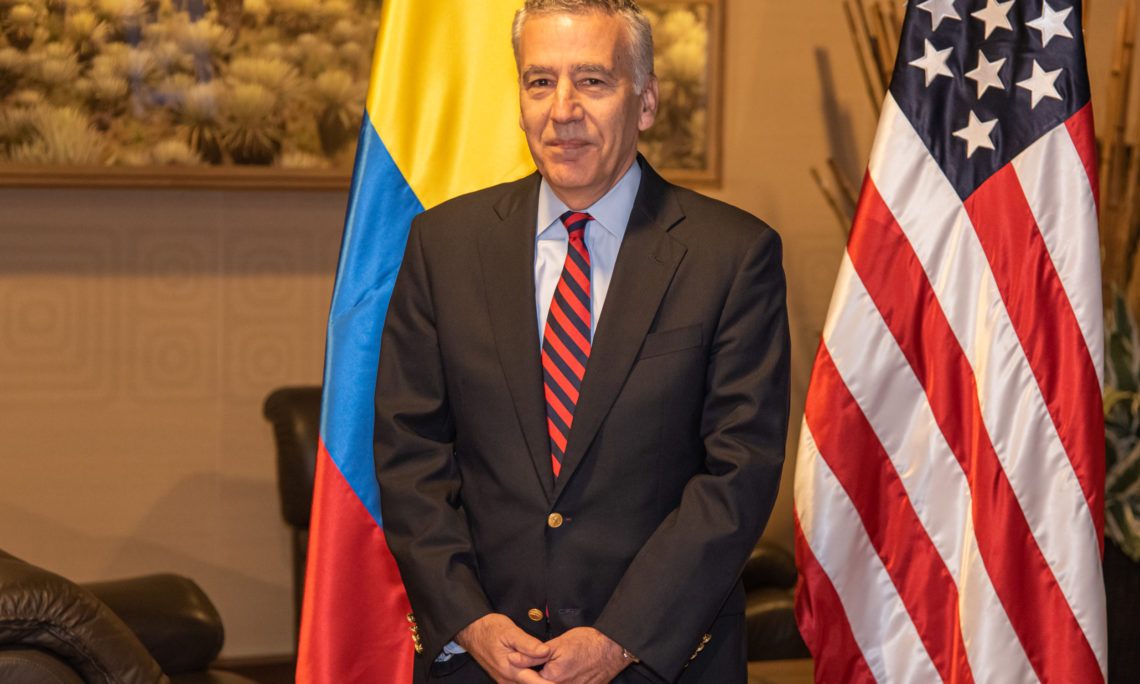After more than a year wait, the Joe Biden administration has decided on a new US ambassador to South Korea, according to sources here. It will nominate Philip Goldberg, a career diplomat currently serving as US Ambassador to Colombia, to lead the US mission in Seoul at a critical moment on the Korean Peninsula.
Observers are trying to determine what Washington’s selection would mean for the future of the 70-year alliance and its approaches to nuclear-armed North Korea, as well as how it views Seoul’s role in its overarching strategy countering China’s increasing influence in the Indo-Pacific region.
The US is said to have asked for the South Korean government’s official nod of approval for its selection -- a process called “agrement” –- with a formal announcement from the White House imminent. Goldberg will then face a Senate confirmation hearing and a full Senate vote, which could take at least two to three months. Considering the timeline, it would be less likely for the new ambassador to arrive here before the March presidential election.
The posting in one of Washington’s key ally countries had been vacant since the previous ambassador to South Korea, former navy admiral Harry Harris, left in January last year when Biden took office. Since then, charge d’affaires Christopher Del Corso has been taking the position for more than a year. The apparent delays in nomination had raised concerns here, questioning Washington’s foreign policy priorities, as well as the strength of bilateral relations, considering the US has named ambassadors to two of South Korea’s neighbors, China and Japan, months ago.
Goldberg is a Career Ambassador, which is the highest diplomatic rank in the US foreign service given only to some 60 diplomats for their distinguished service. He has been serving as ambassador to Colombia since 2019 as former President Donald Trump’s appointee. Before that, the 65-year-old worked as ambassador to Cuba, the Philippines and Bolivia, among other posts. He also served as assistant secretary of state for intelligence and research.
But many here are focusing special attention on Goldberg’s stint from 2009-10 as coordinator for the implementation of United Nations sanctions on North Korea. Goldberg was tasked by President Barack Obama to lead the interagency team carrying out UN Security Council resolution 1874, which punishes Pyongyang for its underground nuclear test on May 25, 2009.
During that time, Goldberg has called on UN member states for “a unity of view, a singleness of purpose” in implementing sanctions on North Korea. He has also stressed the need for carrying out sanctions with the overall goal of denuclearization and non-proliferation in the Korean Peninsula.
His time as sanction enforcer leads some to speculate that Washington will take a tougher line and press more sanctions on Pyongyang, which has rebuffed calls for dialogue and instead has continued saber-rattling, conducting six weapons tests this month.
Early this month, the US slapped sanctions on five North Koreans in response to Pyongyang’s back-to-back missile launches, marking the Biden administration’s first economic punishment over the regime’s weapons of mass destruction. Washington has been pressing the UN Security Council to expand further sanctions against Pyongyang, even as Beijing and Moscow are reluctant.
If Pyongyang continues to up the ante, Washington will likely tighten sanctions, and Goldberg nomination could be calculated into that, according to some.
But experts are careful in making the hasty assessment that the appointment will mean Washington’s hard-line stance on Pyongyang. While dealing with North Korea is an important job description for Washington’s top man in Seoul, it is not all of it, and there are many other factors that play into the decision, they say.
“Goldberg, as a career ambassador, is a bigwig in Washington’s diplomatic circle, and the fact that the US is sending such a veteran here is noteworthy,” said Park Won-gon, a professor of North Korean studies at Ewha Womans University. “When looking into his diplomatic career, Goldberg comes with vast experiences in different areas, particularly in conflict zones, and has great understanding of key US foreign policy. Biden’s pick takes consideration of issues with North Korea, but in a bigger picture could be in line with its strategy to enhance an alliance countering China.”
In Park‘s view, the US, through Goldgerg’s appointment, is seeking to forge closer ties with South Korea amid Seoul’s “strategic ambiguity” stance, juggling relations with its security ally Washington and key trade partner China. “His role will likely be to further strengthen the South Korea-US alliance, as well as bolster trilateral cooperation with Japan to actively contain China,” he said.
By Ahn Sung-mi (
sahn@heraldcorp.com)







![[Today’s K-pop] Blackpink’s Jennie, Lisa invited to Coachella as solo acts](http://res.heraldm.com/phpwas/restmb_idxmake.php?idx=644&simg=/content/image/2024/11/21/20241121050099_0.jpg)
